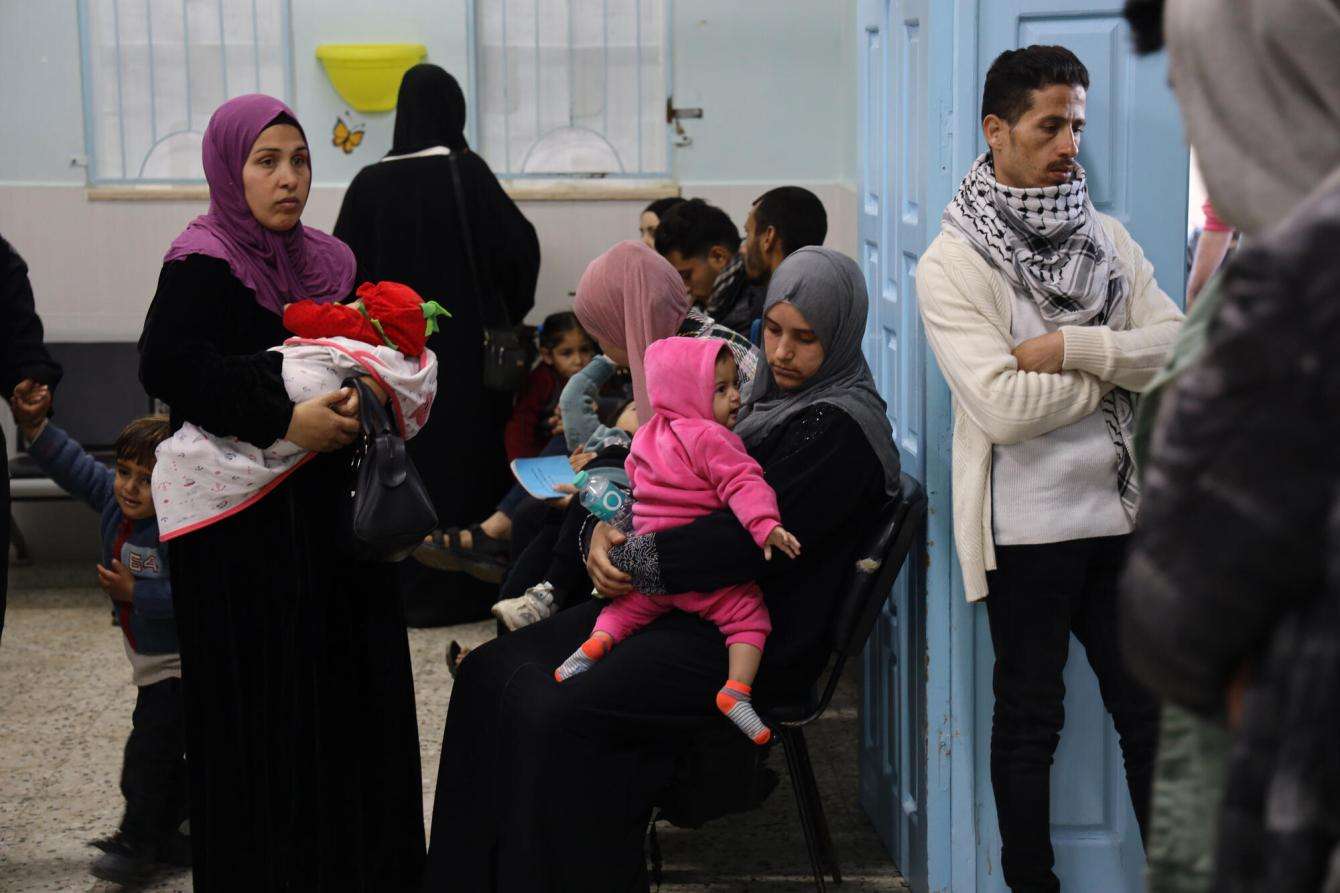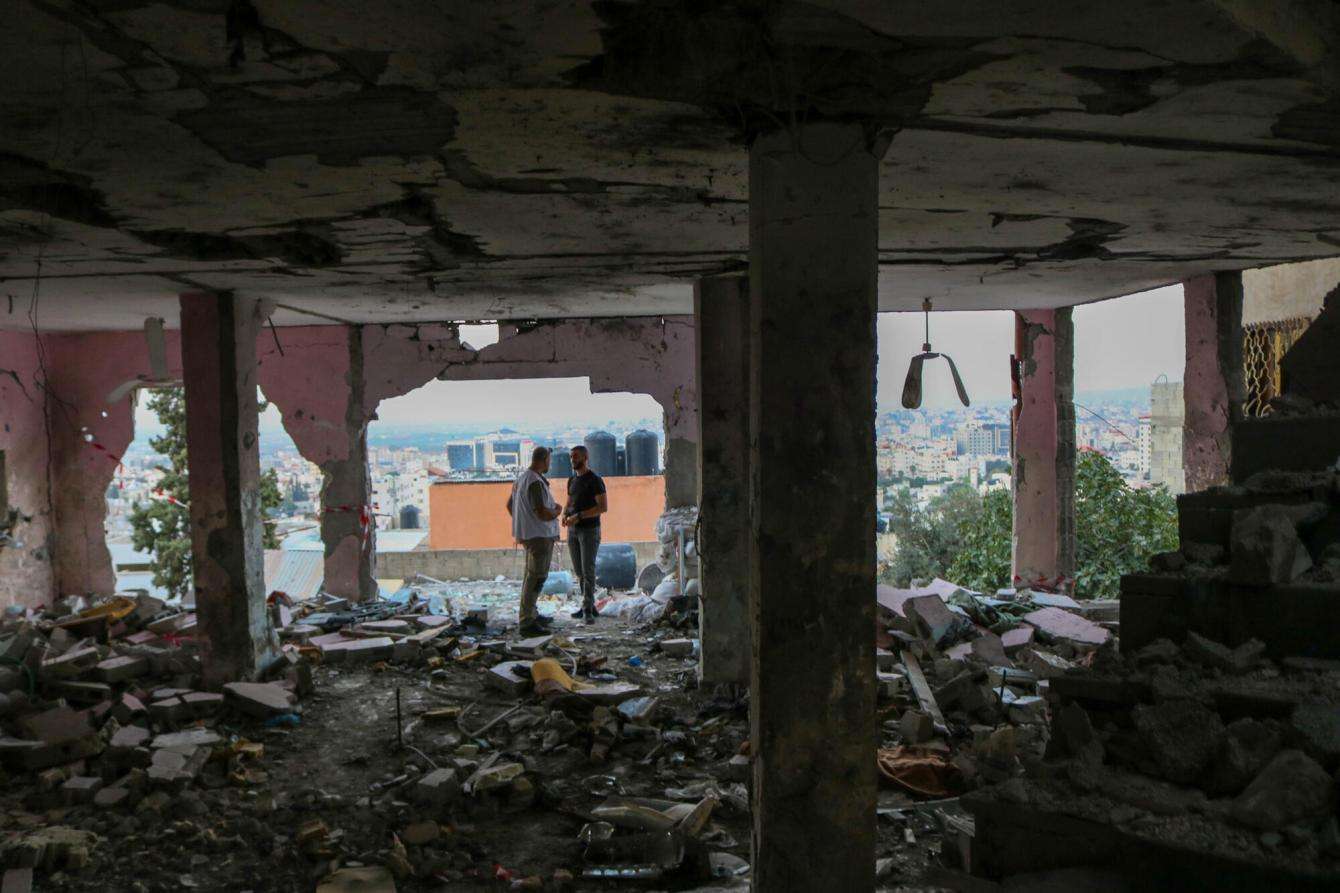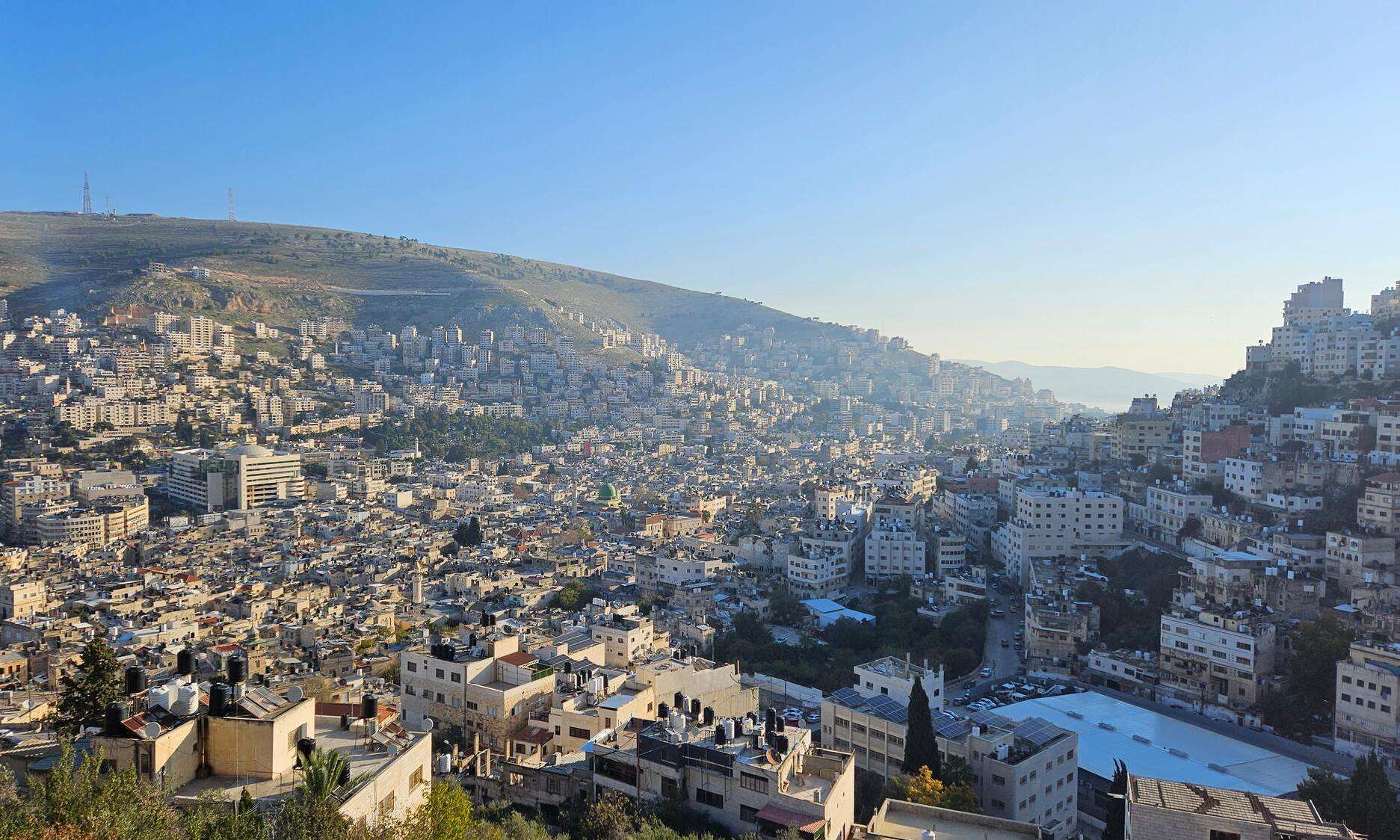At dawn, Abbas lights a cigarette and looks into the distance, across the rugged landscape of the West Bank. He hadn’t slept all night; he spent it thinking of his family, who’s living under constant threat of injury and death as bombing and violence continue in Gaza, about 60 miles away. His only objective for the day is the same as any other: to be able to talk to them.
“All my family is in Gaza, scattered between the north, and Khan Younis and Rafah in the south,” says Abbas. “My wife and kids are living in a tent. They have already been displaced four times since the start of the war. At times they slept in the street, in mosques, or in abandoned buildings. My four children are between five and 14 years old. Can you imagine?” Abbas clears his throat. “Every morning at dawn, I try to reach them by phone to know if they survived the night. Some days, communications are cut off and I have to wait for days to hear from them.”

Seeking refuge in the West Bank
Abbas is a Palestinian from Gaza who used to commute to Israel for work. Every month, he would cross the border from the north of the Strip, where his home was, to go to work in an iron factory for a few weeks and return home for a three-day break. As the oldest surviving member of his family, he has been responsible for his relatives since his father passed away.
Abbas was at work on October 7, when Hamas launched its attack in Israel. The next day, Israeli soldiers turned up at the factory and began to harass the Palestinian workers, threatening to shoot them if they did not flee to the West Bank. Abbas sought refuge in the mountains for two days before finally reaching the West Bank—one of over 6,000 Gaza residents to do so, according to the Palestinian Authority’s Ministry of Labor. When he passed an Israeli checkpoint, the soldiers took his money and belongings, but left his phone.
“I consider myself lucky because I managed to keep my phone. Others were not that lucky. They were arrested, beaten, or even made to disappear,” explains Abbas. “I don’t have any family here in the West Bank, so I found refuge in a community with other workers. We live in terrible conditions, sleeping on the ground with no mattresses, blankets, or heating, but it is nothing compared to the horrific conditions in Gaza.”
A father desperate to return home
“I am desperately trying to go to Gaza and join my family, but it is impossible,” he says. “At some point, the Israeli authorities said they would allow Gazan workers to return to Gaza, but the ones who tried were arrested, robbed, interrogated, and beaten. If I get arrested, I will lose contact with my family.”
Still, Abbas is determined to find a way to return. “My wife wants me to go so we can die together,” he adds. “It is hard for her to take care of the children. The more weeks go by, the more surviving is a miracle. There is no drinking water, and they can barely find food. Some days they drink salty water from the sea. If they get sick, they can’t go to the hospital, as it is overcrowded with trauma patients and not safe.”

A shocking trend of violence against Palestinians
While Gaza is being crushed by the Israeli army’s relentless bombing, the West Bank is experiencing a bloody ordeal of its own. Violence and harassment against Palestinians by settlers and Israeli forces was already rife before October 7. By that watershed date, about 200 Palestinians had already been killed in the West Bank, and, with an additional 259 killed since, 2023 has been the deadliest year on record, according to OCHA. This is a continuation of a shocking trend seen in the past few years.
After the 7th, the number of attacks on Palestinians soared even further. It has become a daily occurrence for Palestinians in the West Bank to be attacked by settlers or arrested and beaten by Israeli forces, while Israeli military operations in the Jenin and Tulkarem refugee camps have resulted in many being killed.
Psychological support plays a critical role in people’s health
In the Nablus area, Abbas met a team of MSF social workers who referred him to their colleagues for psychological consultations as part of a mental health program that has been running for over two decades, branching out over time to the nearby towns of Qalqiliya and Tubas. By the end of November, psychologists and psychiatrists in the program provided over 2,600 consultations this year.
This has been Abbas’s first experience with therapy, and he says it’s helping. He knew of MSF from back in Gaza, as his father had been a patient a few years ago.
“My five-year-old asked me the other day, ‘Dad, why do you let me starve? Dad, other kids, their father died with them, so don’t let us die alone.' I don’t know how to reply so I strive to find comforting words but he replies, 'Don’t lie to me, Dad.'”
“Because of the constant bombing, it has become customary in Gaza to make people identifiable in case they are killed by writing their names on their bodies—a hand, an arm, a leg, or the neck. My wife and three of my kids wrote their names on themselves but she could not do it on the youngest. It was too painful.”
“What will our lives be like after they have finished bombing? Streets, hospitals, universities, and schools are all destroyed,” says Abbas. “This is not right. I am a good citizen—I work, I pay my taxes, and so on. I should have basic human rights. Stop the suffering.”
*Name changed to protect privacy
About MSF in the West Bank
MSF teams in Nablus first started offering mental health consultations in 1988. Teams in the West Bank are also running mental health activities, aiding in emergency preparedness in Hebron, and supporting the emergency medical response in Tulkarem and Jenin refugee camps—primarily at Khalil Suleiman hospital.




